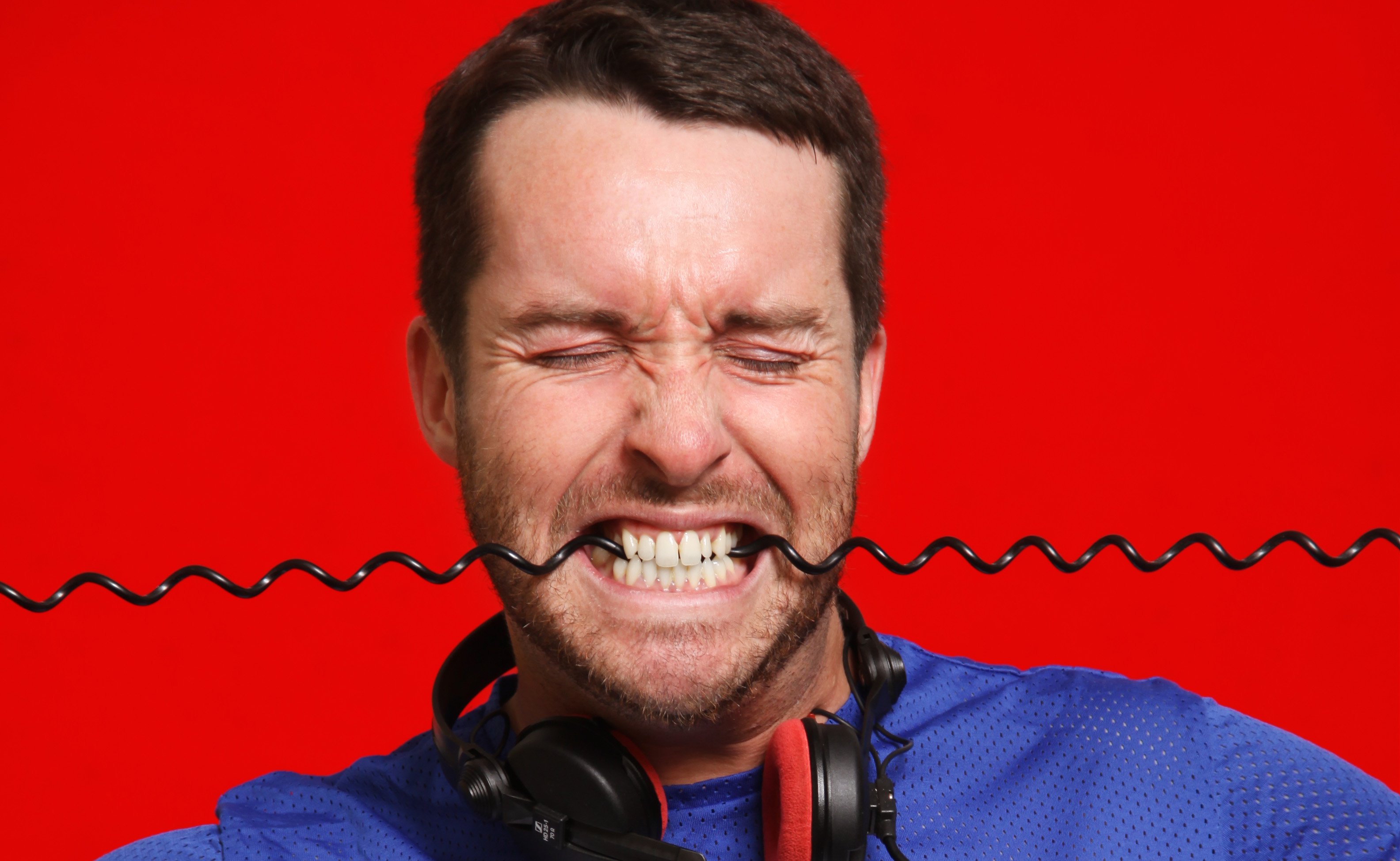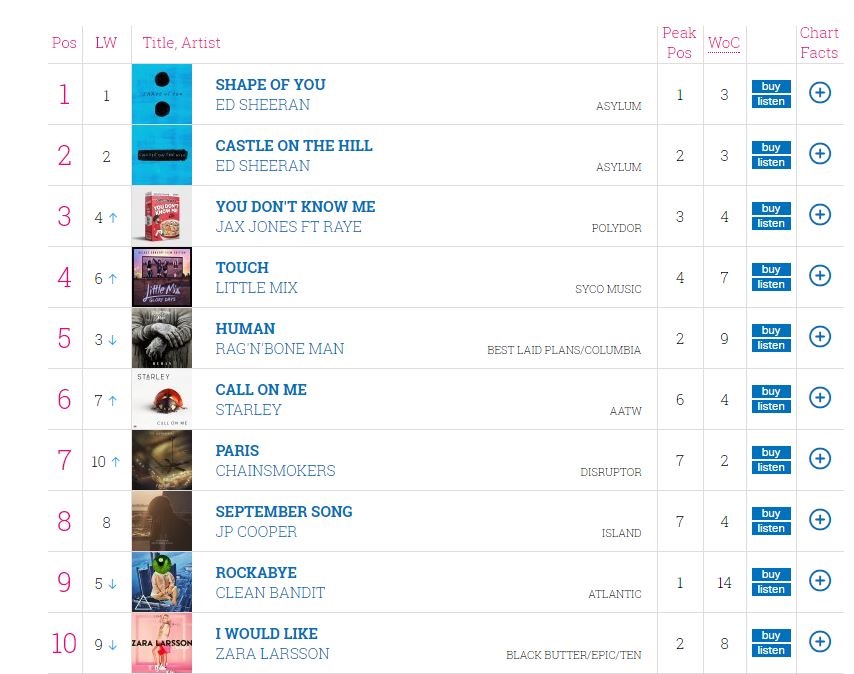Pop music in crisis: Why streaming has brought the charts to a standstill
By Will Stroude

I’m a little worried it might be down to my age, but there seems to be something seriously wrong – Casualty-level critical – with the pop and commercial music chart.
I am not talking about house music sets, where I find brilliant new tunes every week. But, now in my eleventh year of DJing, and working in Liverpool’s biggest gay nightclub, more and more, my colleagues and I are asking: where is the new music?
At the ripe old age of 33, some gay guys place my date of birth in the Jurassic era, and I am regularly referred to as “the older man” in the bars where I also work. I worry that I’m not down with the kids any more, so much so that I’ve considered retiring. But on careful consideration, I realise my fears are unfounded; Lemonade was my favourite album of last year, Formation, for me, was 2016’s best single. The problem, it seems, is about more than me being a relic.
In the current Top 40 singles chart, a whopping 31 have been there for at least 12 weeks. Two of them have been there for more than six months.
The singles chart is gridlocked. The domino effect of this is that the heavyweight radio stations predominantly play what is in the chart. When it comes to new music, only tracks by massive artists consistently seem to be breaking through.

It takes a huge launch performance on X Factor for Little Mix to make an impact on the chart, or you need to be an A-Lister of the highest order – the likes of Beyoncé or Rihanna. Anything less and it’s unlikely the traffic will make way.
The reason for this is simple: streaming. Ask yourself this: did Drake’s One Dance really deserve to be No. 1 for 15 consecutive weeks? A solid tune perhaps, but hardly groundbreaking. But it’s now been floating around the Top 40 for a mammoth 41 weeks.
Pleasant as Can’t Stop The Feeling by Justin Timberlake is for a poor man’s version of Pharrell’s Happy, how can it still be holding on for dear life in the Top 40 after 36 weeks? Really?
Songs that would have charted higher and faster before streaming was included in sales tallies simply… aren’t. Fifth Harmony’s That’s My Girl, which I’ve heard on repeat at every LGBT+ venue in Liverpool in recent weeks, didn’t even touch the top 25. Great or even good pop songs pretty much flop despite seeming to appear well-known and popular in social circles.
So why is streaming gridlocking the charts? Well, first off; fewer artists are releasing fewer singles so there’s less music for streaming sites to play with. Furthermore, because of the playlists sites like Spotify compile that are designed to attract as many listens as possible and don’t focus so much on the new music but crowd-pleasers that have been around for a while, a ‘bottleneck’ effect emerges at the top of the top 40 – whilst simultaneously very little traffic is entering from the bottom.
A friend of mine who is a record company executive at one of the biggest labels in the world agrees streaming is playing a considerable part – around 100 streams count as one sale. Additionally, if you look at the number of singles that were released in 2016 and the number of artists, compared with two years ago, there has been a significant decline in quantity. The exec says: “We are looking for one of three things in a record now and it has to have at least one. A) Hype. Beyoncé has that, she can release a record without telling anyone and the world rushes out to buy it. B) Emotion. Adele and Ed Sheeran nail this – their songs are from the heart. C) Hook. Uptown Funk and Sax are examples of this.”
Another signal that something isn’t quite right about streaming and sales came with was the death of George Michael. Are you really telling me his plethora of amazing pop songs weren’t what huge numbers of people were listening to after the news broke? And sure, while some of his songs re-entered the charts, and he was undeniably the artist in everyone’s heart and mind, as well headphones, not one of his classic tracks stormed to the heights of the music of other icons who died suddenly – think Whitney Houston or Michael Jackson. Something doesn’t quite add up.
Something needs to change with the way the chart is run before pop music as we know it ventures down a dangerous route towards total death. Sure, DJs can play new songs, but on a packed dancefloor on a Saturday night we have to choose our moments wisely and sparingly. And who’s to say these songs will stick?
Our main job is not to lose the room, which is pretty difficult when you’re playing a song people are hearing for the first time and when inebriated. (I suspect that challenge is slightly different with house music which is all about reading the room and clever sequencing of where to put your new bits).
I know several DJs who are anxious that they are boring their audience. We need the congestion in the charts to be alleviated so we in turn can help stop the merry-go-round of Rihanna, Ariana Grande, Sean Paul, Little Mix and, yes, Fifth Harmony.
So, next time you’re out on your Saturday night and pondering where the all-new four-to-the-floor dynamite pop bangers are getting lit, now you know: they aren’t. Mainly because of streaming.
Perhaps I am showing my age here, but don’t you miss the days when you’d rise, hungover, just to watch Girls Aloud on CD:UK furiously promoting a new single in an exciting six-week ramp-up campaign to see how high it would go on entry? Don’t you miss Britney cavorting around to make sure she claims the top spot? Or the latest boyband trying to seem perky on Live & Kicking when they are feeling anything but?
Don’t even get me started on the demise of Top Of The Pops and the era of Smash Hits.
What has happened to our celebration of pop music and its culture? Where has it gone? I fear it’s locked in the broom cupboard with Andi Peters.
OK, that definitely is an age thing.
Paul Culshaw is a Liverpool-based actor, author and DJ. Follow him on Twitter @PaulCulshaw1983.
More stories:
How Instagram became the new gay cruising ground
‘There’s more to me than just a body’ – Tom Daley dives into Attitude’s body issue
